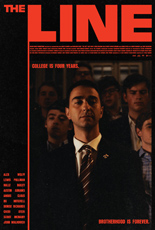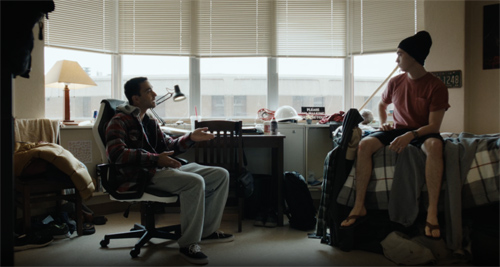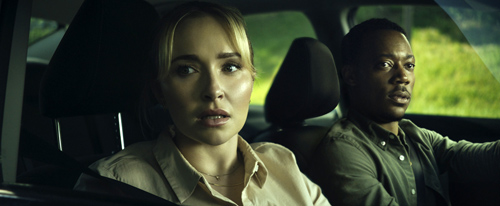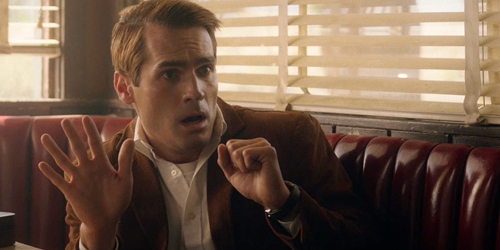
Fret not, Pather Panchali! Your status as the icon of Indian cinema remains unabated and unchallenged by the screen’s introduction of Mustafa in Farhan M. Khan’s Spider. It’s 59 minutes of digital video garbage.
As played by Afzaal Nabi, a name you need not remember, Mustafa is a “chartered accountant” for a pharmaceutical company, a fact you need not remember because Mustafa keeps bringing it up. Professional though he may be, he’s dressed like either a cabbie or a Newsie.
Per the result of an abduction, he’s also stranded in a “forest” (actually a rural road with well-tread tire path) and stalked by a giant arachnid (actually a test-level animation of what looks like an ant with an extra pair of legs). Like Tom Hardy in Locke, Mustafa spends the bulk of Spider stuck in a car, albeit one that cannot move.

Also like Tom Hardy in Locke, much of this movie is yelling at people on the phone. Mustafa calls his country’s version of 911, the police, his boss, his wife, her friend and, finally, his mom, to whom he says, “You used to cook me sweet noodles!” (And to his son, via an awkward goodbye video: “I wanted you to grow up and wear my clothes and have a fight with me.” Huh?)
Now, unlike Tom Hardy in Locke, Mustafa reads the vehicle owner’s manual, eats one page and takes a couple of naps — all riveting. Then it just kinda stops.
But what about the spiders? They’re largely incidental. Even if Khan got a buddy to do the effects for free, he overspent. —Rod Lott









